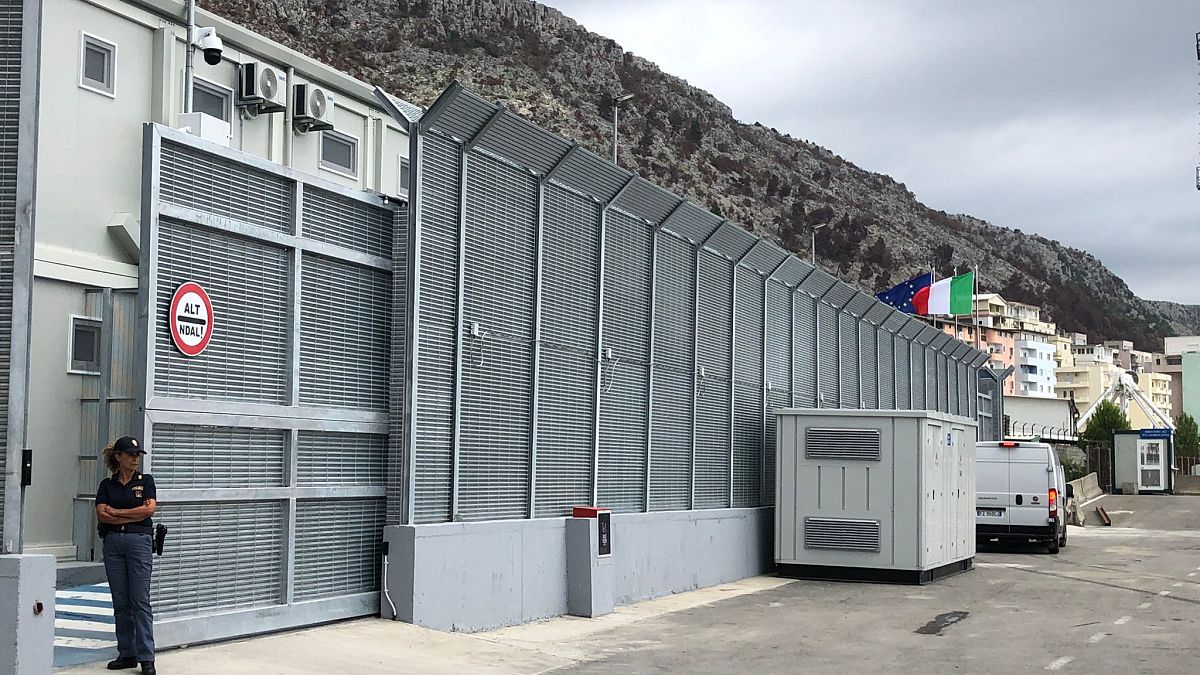The Italian government has built centres in Albania to host migrants rescued in the Mediterranean, as part of an agreement between the two countries. Initially, up to 400 male migrants who have been rescued by Italian ships will be sent to these centres in the coastal town of Shengjin. The centres are managed by Italian staff and provide services such as interpreters, medical visits, and the possibility to apply for asylum. The main section of the centre is dedicated to housing asylum seekers while their requests are being processed, following the accelerated procedure outlined in Italian law.
Applications for asylum must be completed within 28 days, and during this time, applicants have access to legal advice and support from international organizations. Those who are not entitled to asylum will be moved to another part of the camp. If the capacity is exceeded, migrants will be transferred to Italy before being repatriated to their countries of origin. The centre also includes a prison with a capacity of 20 places for migrants who commit crimes, as the entire facility is a place of forced detention monitored by Italian police officers.
Asylum seekers who have their request accepted will be transferred to Italy with a residence permit, while those whose requests are rejected will be repatriated at Italy’s expense and responsibility. Tens of millions of euros have been spent on building these structures, but the overall cost of the procedures for the five-year duration of the agreement between Italy and Albania is still unknown. The aim of these centres is to streamline the processing of asylum requests and manage the influx of migrants in a more organized manner.
The collaboration between Italy and Albania in hosting and processing rescued migrants highlights the shared responsibility in managing migration flows in the Mediterranean. By providing facilities and support services in Albania, the Italian government aims to create a more efficient system for assessing asylum requests and ensuring that those in need of protection receive it promptly. The centres also serve as a controlled environment for migrants whose requests are rejected, ensuring their safe return to their countries of origin.
The presence of Italian staff, interpreters, and medical services in the centres ensures that migrants have access to necessary assistance during their stay. The facilities also include a prison for migrants who engage in criminal activities, emphasizing the importance of security measures in these settings. Overall, the centres aim to uphold the principles of humane treatment and due process for migrants while managing the asylum process effectively.
The financial investment made by Italy in constructing these centres reflects the commitment to providing proper care and support for migrants in need of protection. By establishing structured procedures for asylum requests and repatriation, the Italian government aims to address the challenges posed by irregular migration and ensure that resources are utilized efficiently. The partnership between Italy and Albania in establishing these centres demonstrates a collaborative approach to managing migration and addressing the humanitarian needs of rescued migrants in the Mediterranean.








